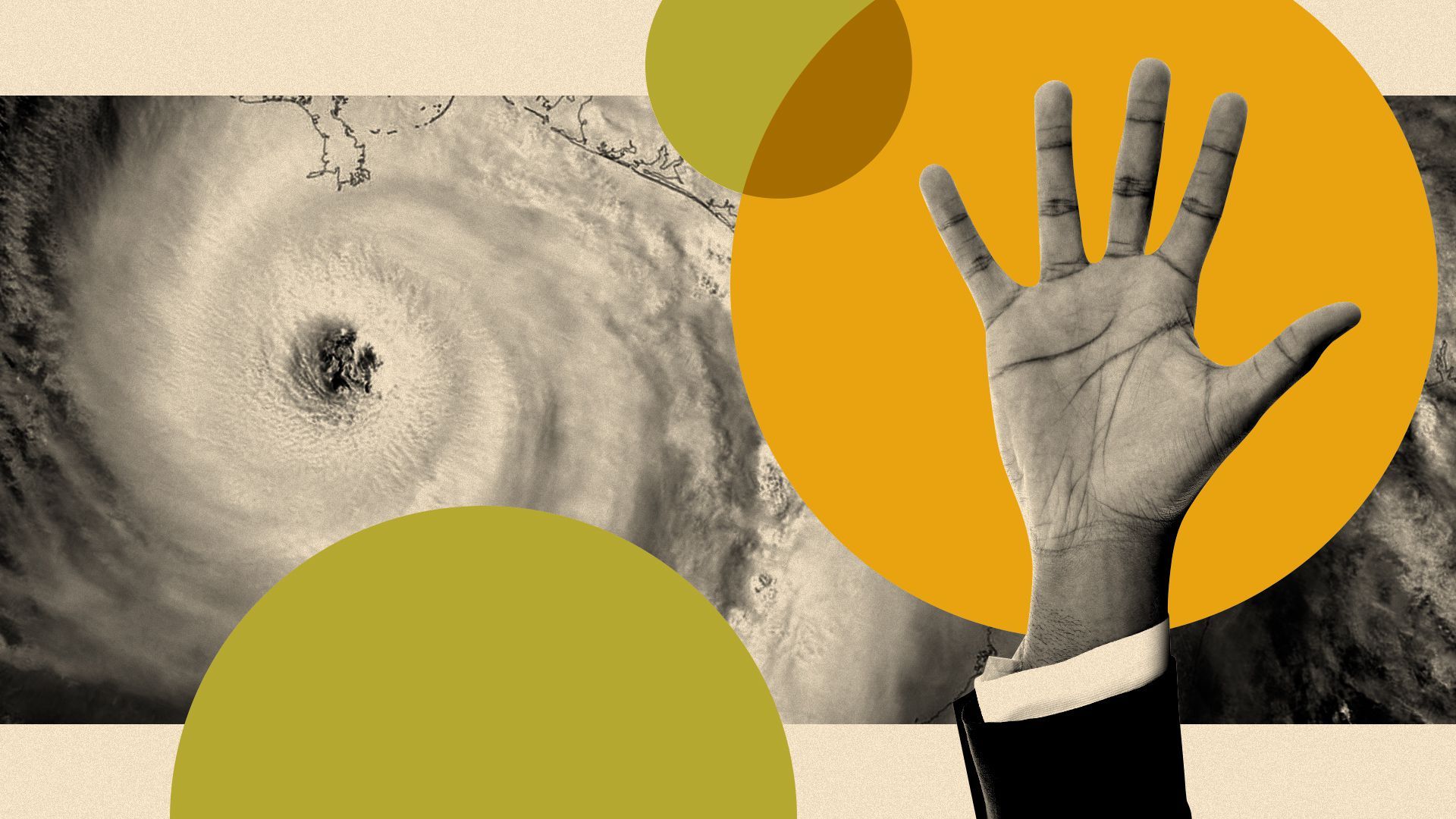Flooding paradise: Island nations' climate threat
Add Axios as your preferred source to
see more of our stories on Google.

Illustration: Aïda Amer/Axios
GLASGOW, Scotland — By the time many of the pledges made in Glasgow this week are met (or not), some of the participating countries may no longer exist.
Driving the news: The world’s 40-some small island states have used COP26 to plead for more urgent action — while there's still time — and to confront world powers like the U.S. and China with the devastation their emissions have caused.
- “Our country is paradise, there’s no doubt about it,” Antigua and Barbuda Prime Minister Gaston Browne tells Axios. “But they are, unfortunately, destroying our pristine environment.”
- “Not only are they destroying lives, they’re destroying livelihoods,” he says. “And if the situation continues, the ultimate situation is losing our lives and losing our civilizations in the Caribbean, Pacific and Indian Oceans.”
- By “they,” does Browne mean, say, the United States? “Oh, absolutely.”
The big picture: For island countries, there are two climate crises: the immediate (hurricanes, flooding, dwindling fish stocks) and the existential.
- The Marshall Islands could be mostly uninhabitable by 2035 due to sea level rise caused by melting ice caps and warming waters — raising the question of whether an entire country can be relocated.
- Other island nations have longer timelines, but equally desperate outlooks.
Fiji has experienced three of its most intense cyclones on record in the last five years, with the equivalent of national GDP wiped out twice in that span. Rebuilding means taking on more debt.
- “It is a choice between extending health care or ensuring that communities can be relocated,” Satyendra Prasad, Fiji's ambassador to the U.N., tells Axios.
- Another choice: Does Fiji improve its schools or repair devastated wharfs so ships can bring food to the island?
- “We are expected to take this scale of devastation and face it with a straight face and recover on our own,” Prasad says.
One of the key issues currently being negotiated at COP26 is how to provide funding to nations coping with climate-related damage and loss. Browne raised that issue in a meeting with Secretary of State Tony Blinken this week, and said his message was "well-received."
- But he doesn't want to wait around for "random random acts of charity." Antigua and Barbuda and Tuvalu announced this week that they would pursue a legal framework to demand compensation from major carbon emitters.
The destruction of the present and the uncertainty of the future weigh heavily on the people of the islands.
- President Surangel Whipps of Palau says suicide rates in his country, as with many small island states, are among the highest in the world.
- He grows emotional when considering the burden this all puts on younger generations. “I'm a parent. Don't you care about your children? ... You have to give them hope."
Asked how you explain to a child that without much stronger climate action their country could disappear, Prasad's voice catches momentarily.
- "I don't think we're telling the young people," he says. "They're telling us."
🌐 Sign up here for Dave Lawler's twice-weekly newsletter, Axios World.
